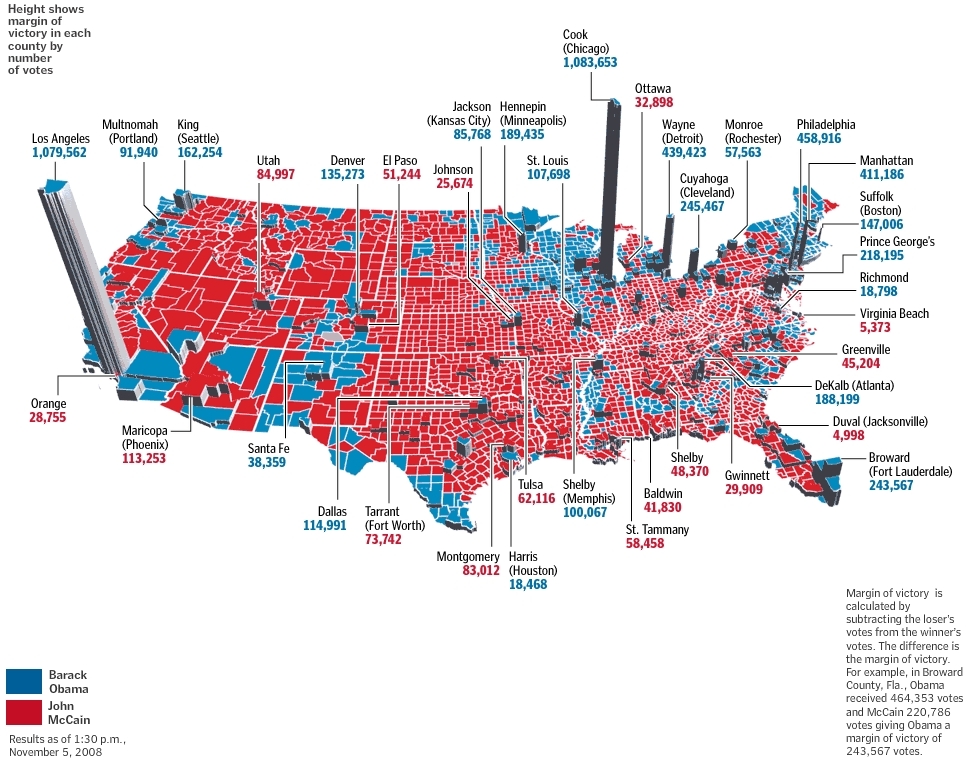Will someone PLEASE explain to me the significance of the electoral votes? More specifically, how is the popular vote 48% - 51%, yet Obama won by more than double the electoral votes as McCain. Someone make sense of this for me. I understand according to the process, the electoral votes are what matter most, but how can it be so one-sided when the popular vote is so close? Do we as normal citizens really have that little of a say in who runs our country?
Duki 552 Nearly a Posting Virtuoso
GrimJack 1,414 Posting Maven Featured Poster
Duki 552 Nearly a Posting Virtuoso
Dave Sinkula 2,398 long time no c Team Colleague
Duki 552 Nearly a Posting Virtuoso
GrimJack 1,414 Posting Maven Featured Poster
Duki 552 Nearly a Posting Virtuoso
GrimJack 1,414 Posting Maven Featured Poster
Dave Sinkula 2,398 long time no c Team Colleague
Duki 552 Nearly a Posting Virtuoso
Dave Sinkula 2,398 long time no c Team Colleague
GrimJack 1,414 Posting Maven Featured Poster
Duki 552 Nearly a Posting Virtuoso
Dave Sinkula 2,398 long time no c Team Colleague
hughv 104 Veteran Poster
sneekula 969 Nearly a Posting Maven
Dave Sinkula 2,398 long time no c Team Colleague
Duki 552 Nearly a Posting Virtuoso
Dave Sinkula 2,398 long time no c Team Colleague
Ancient Dragon 5,243 Achieved Level 70 Team Colleague Featured Poster
Duki 552 Nearly a Posting Virtuoso
GrimJack 1,414 Posting Maven Featured Poster
GrimJack 1,414 Posting Maven Featured Poster
Dave Sinkula 2,398 long time no c Team Colleague
GrimJack 1,414 Posting Maven Featured Poster
Dave Sinkula 2,398 long time no c Team Colleague
GrimJack 1,414 Posting Maven Featured Poster
Dave Sinkula 2,398 long time no c Team Colleague
Be a part of the DaniWeb community
We're a friendly, industry-focused community of developers, IT pros, digital marketers, and technology enthusiasts meeting, networking, learning, and sharing knowledge.


